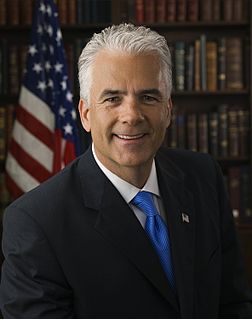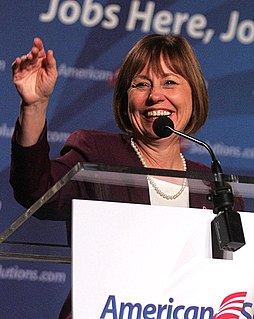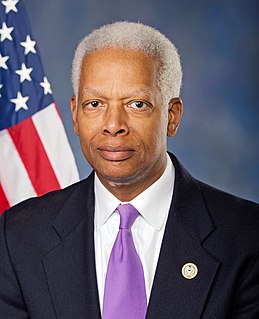A Quote by Harry Reid
Unemployment insurance was meant to be a bridge for temporary spells of unemployment. The bad news is all the evidence is that the longer you have unemployment insurance, the longer people stay out of work, their skills erode. The job they ultimately get pays less. And that's not to their benefit.
Related Quotes
I've heard the argument that unemployment benefits somehow act as a disincentive to the long-term unemployed when it comes to looking for work, but the opposite is true. Unemployment Insurance serves as a powerful incentive for people to keep searching for jobs, rather than drop out of the labor force altogether.
Well, all across the country, this is kind of sad, unemployment offices are swamped with people waiting to file for unemployment insurance. It's gotten so bad that the offices are overwhelmed and can't function. I got an idea. Why don't you hire more people? They're right there in line. Speed this whole thing up!
Unemployment insurance, abolishing child labor, the 40-hour work week, collective bargaining, strong banking regulations, deposit insurance, and job programs that put millions of people to work were all described, in one way or another, as 'socialist.' Yet, these programs have become the fabric of our nation and the foundation of the middle class.
All of the progress that the US has made over the last couple of centuries has come from unemployment. It has come from figuring out how to produce more goods with fewer workers, thereby releasing labor to be more productive in other areas. It has never come about through permanent unemployment, but temporary unemployment, in the process of shifting people from one area to another.
You know, there is an argument to be made that these extensions of unemployment benefits keep people from going and finding jobs. In fact there are some studies that have been done that show people stay on unemployment compensation and they don't look for a job until two or three weeks before they know the benefits are going to run out.
The black unemployment rate has to be twice that of the white rate in the US. If the national unemployment rate were 6.8 percent, everyone would be freaking out. We ought to not take too much solace in the 6.8 percent, but ask ourselves what can we do to bring that down to white rates, which are below 4 percent now. Some of that has to do with education, but that's just part of the story. You find that those unemployment differentials persist across every education level. I think it means pushing back on discrimination and helping people who can't find work get into the job market.
































